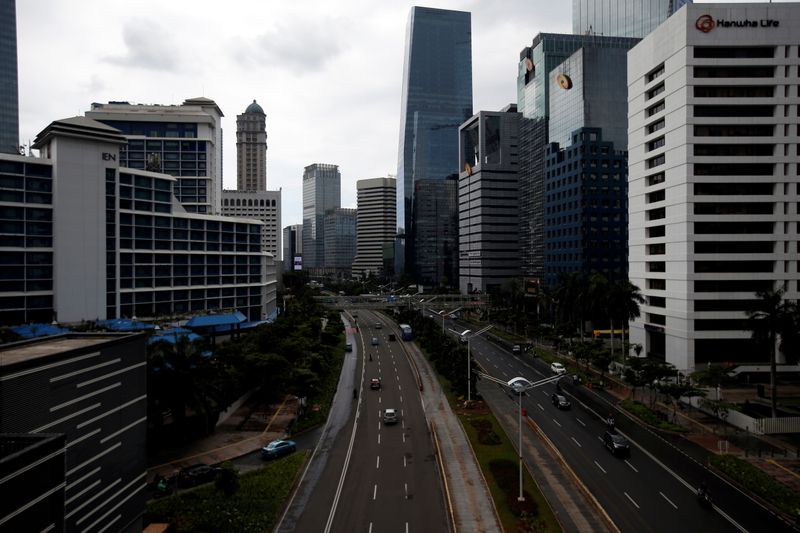JAKARTA (Reuters) – Bank Central Asia (BCA) <BBCA.JK>, Indonesia’s largest bank by market value, may join a government programme to lend to banks to improve their liquidity, its president director told Reuters.
Indonesia’s Financial Services Authority (OJK) and finance ministry this week said big banks that are healthy can apply to lend to banks facing a cash crunch due to the coronavirus pandemic, using funds provided by the government.
It is the first scheme in Indonesia to include commercial banks. In past crises, the central bank has provided short-term liquidity support.
Banks can provide liquidity using a special purpose vehicle with the interest rate capped at a level that the government will set, plus 300 basis points.
“If there is a bank that needs liquidity and there is no rumour swirling around, we can help,” BCA president director Jahja Setiaatmadja said in a text message, when asked about participating.
“We’re still studying the use of SPV,” he said.
BCA’s end-March capital adequacy ratio was 22.5%, above minimum requirements under global capital rules, known as Basel III. BCA’s non-performing loan ratio was at 1.6%. Its first-quarter net income was up 8.6% to 6.6 trillion rupiah ($467.36 million).
Other banks with strong capital positions may be interested in participating due to the spread, said Wawan Hendrayana, analyst at investment research firm Infovesta Utama, referring to the 300 basis points spread on offer.
Last month, officials said the programme would be funded in part using low-yielding bonds the government sells directly to the central bank.
Bank Indonesia and the finance ministry were still finalising details, Governor Perry Warjiyo said last week.
State-controlled Bank Mandiri, Indonesia’s second-biggest lender by assets, was more cautious.
“In principle, if we’re appointed by the government, we will do it,” corporate secretary Rully Setiawan told Reuters.
“This is being discussed at a higher level, including with the state-owned enterprises ministry,” he said.
Mandiri’s capital adequacy ratio was 17.67% in its first-quarter report, with an NPL ratio at 2.36%. Net income was up 9.4% to 7.9 trillion rupiah.
As of May 26, banks had restructured 517.2 trillion rupiah of loans for more than 5 million debtors, OJK data showed.
The banking industry’s average capital adequacy ratio level in April was 22.13%, well above minimum Basel III requirements, while NPL ratios were 2.89%.
There are some signs of stress however. Bank Bukopin said this week it had negative cashflow due to a drop in overall savings.
(This story corrects headline and first paragraph to remove word “troubled” which BCA president director did not say)
(Additional reporting by Tabita Diela; Writing by Gayatri Suroyo; Editing by Ed Davies and Jane Merriman)
























